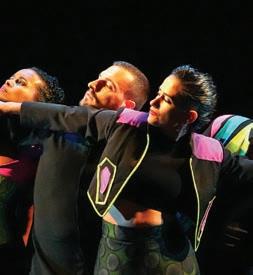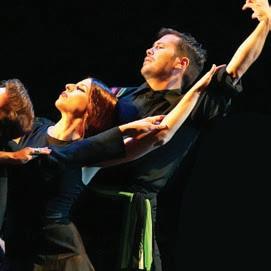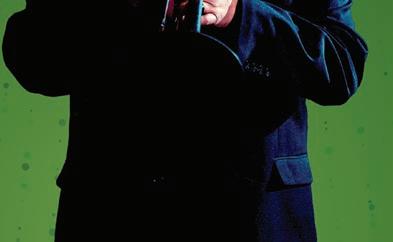
3 minute read
ELEVATIONS
roads that lead to it could overturn a Jeep. She’s immensely proud of where she lives, even though she knows, one day, she will have to leave.
Until then, Shoaee wants to run her organization, Always Choose Adventures, which helps people of all ages, backgrounds and, most importantly, physical abilities, experience the outdoors. She and her Hypoxic Homies, a group of hikers like her, all acknowledge their limitations the condition puts on them, but they don’t want to be limited by any kind of assumptions about their ability, or medical insurance, or misdiagnoses.
ere are more than you might think: Shoaee puts severe limits on the money she makes so she can stay on Medicaid, which pays for her portable oxygen. Her place was a ordable because it was in poor condition, and because she sold her townhome, buoyed by the skyrocketing market. Quite frankly, it looks like a bargain, even if the land around it looks priceless.
“I live in poverty,” she says, “so I can breathe.”
On doctor’s orders, Shoaee’s parents kept her inside when she was a kid. She was born with tracheoesophageal stula, an abnormal connection between the esophagus and the trachea, and low-functioning lungs.
She felt a void that wasn’t lled until she founded Always Choose Adventures and sought treatment with National Jewish Hospital, where doctors told her her birth defects were never addressed properly: Her trachea collapses up to 90% of the time. ey put her on oxygen to use while adventuring and it’s made all the di erence.
She’s still hypoxic, but she believes many other Coloradans are, too, and don’t realize it. We all need oxygen, and without enough of it, we get confused, restless and anxious, and have bluish skin, a rapid heart rate and di culty breathing.


Breathing problems can cause hypoxia, but it isn’t limited to them. Shoaee tells story after story of visitors who come from sea level and don’t feel right. Colorado’s thin air isn’t kind to those who are accustomed to drawing in glut- tonous gulps of oxygen with every breath. Just the other day, she checked the oxygen levels of a visitor by using a nger sensor. ey’re probably hypoxic, Shoaee said. Colorado is a hard place to live. e condition is more common now after the pandemic. One of Shoaee’s best friends, one of her Hypoxic Homies, is Audra Lilly, who works as a pediatric nurse practitioner. She was diagnosed with lupus in 2015 when she was living in Dallas. Exercise helped lube her joints: e more she did it, the better she felt. She moved to Littleton to be in a place where she could do outdoor activities all the time. She took up trail running and felt better than she had in years.


“She was hypoxic as f---,” Shoaee said, using one of her favorite phrases.




Many others with asthma struggle here, Shoaee said, and even those seemingly in good health may wonder why they’re anxious all the time and don’t sleep well.
“I needed a place where I could be outdoors all the time and live a healthy lifestyle,” Lilly said. “Dallas wasn’t that.”
But her job left her susceptible to the pandemic, and sure enough, she got COVID-19 in November 2020. It ravaged her body, forcing her into the hospital for weeks.

At one point, doctors asked her if life support was OK. She refused, preferring to battle it on her own, as she did with lupus. Lupus can be as mean as COVID: Her joints sti ened in her hospital bed, so she dragged her huge oxygen tank behind her and walked around her room.
She now uses oxygen to hike and run, though not as much as she used to. She met Shoaee in a hypoxia support group on Facebook.
“When I asked for advice on hiking and running, people would tell me not to do it, especially doctors,” Lilly, 41, said, “but Chantelle was like, ‘I’ll go with you!’”
Yes, Lilly sees the irony in moving to a state because of health problems and now may need to leave it one day because of health problems. But she is determined to stay as long as she can.
“Honestly, when I put my oxygen in, it goes away,” Lilly said. “I’m getting back to where I was before this happened.”








